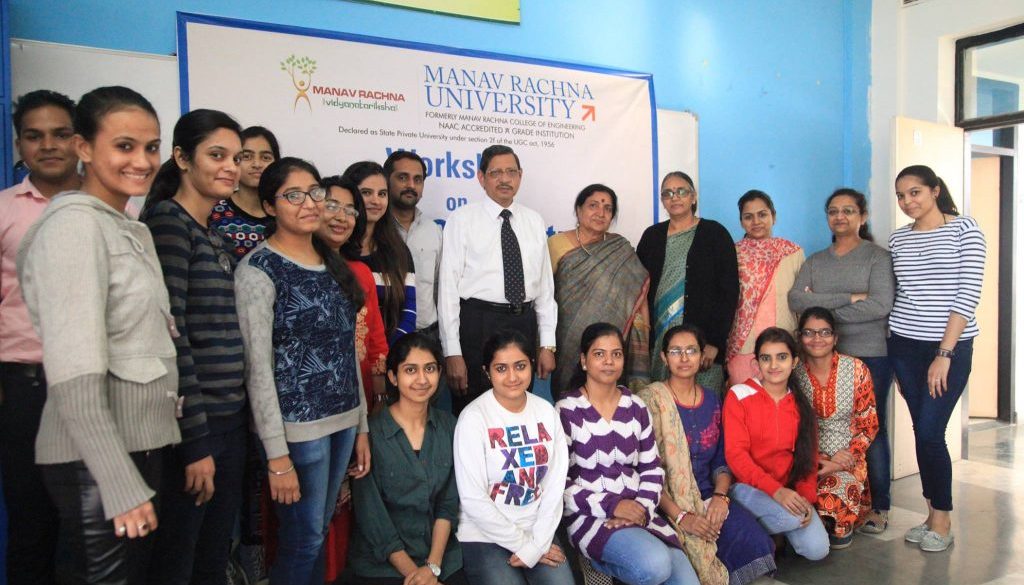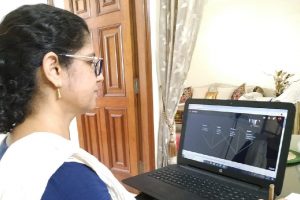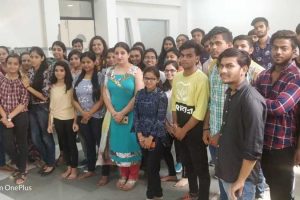Workshop on GREEN CHEMISTRY at MRU
A one day Workshop on GREEN CHEMISTRY was organized by ECO CLUB, Department of Chemistry, MRU and GREEN CHEMISTRY NETWORK CENTRE-MR Chapter at Manav Rachna University. The Workshop was attended by students of M.Sc. (Chemistry) and B.Sc. (Hons) and faculty members of Chemistry Department and Education Department of MRU.
Prof A. K. Gupta, Proctor; Dr. Sangita Banga, Director (Student-Welfare) and Dr. Megha Mittal, HOD (Chemistry) honoured the guests Dr. Indu T. Sidhwani and Dr. B. Vaijayanthi with a Sapling, which is a green initiative by Manav Rachna Group. Ms. Kajol Rana, President Eco-Club delivered the welcome address and Ms. Divya Chhabra,Vice President Eco-Club introduced the speaker Dr. INDU TUCKER SIDHWANI, Associate Professor, Gargi College, University of Delhi.
Dr Indu Sidhwani has over 43 years of teaching and research experience and is propagating Green Chemistry at the School and College Level. She has conducted several workshops for colleges of Delhi University and Public Schools of Delhi and NCR. She has been conferred with Meritorious Teacher Award for Higher Education in 2013 and Teaching Excellence Award for Innovation in 2015.
She started her lecture by explaining the importance of Green Chemistry for Chemical Industries and narrated many case studies of chemical disasters such as the Bhopal Gas Tragedy and Cuyahoga River, Ohio etc. which could have been overcome by using the Green Routes. She discussed the 12 Principles of Green Chemistry and their salient features as well. She talked about Real World Cases for Safer Dry Cleaning, Replacement of Lead in Paints, Environmentally advanced wood preservatives and Right-Fit Pigments.
In the afternoon session, she demonstrated several experiments of Green Chemistry such as
1. Micro tests for anions and cations in qualitative analysis without using sulfur compounds especially Hydrogen Sulfide
2. One pot synthesis of azo-methines
3. One pot solvent less synthesis of Ni- Dimethyl Glyoxime Complex
4. Microwave Assisted Synthesis of Copper Phthalocyanine
5. Extraction of D-Limonene from Orange Peel by Liquid CO2
6. She also explained Preparation of Gold Nano-particles using Tea Leaves and Bio-Diesel from Waste Cooking Oil
The morning session was very interactive and as both Students and Faculty benefited from the same. In the afternoon lab session, students were amazed to see the simplification in the qualitative analysis of cations and anions. They also experienced the less time consuming green syntheses of various metal complexes. Overall, the workshop met the desired objectives and stimulated the process of thinking about ‘Going Green’ in the Students and Faculty.





